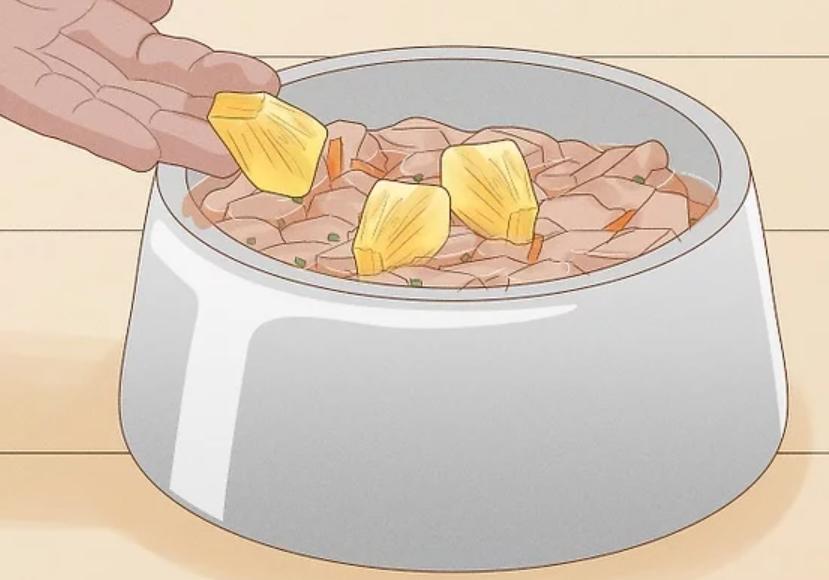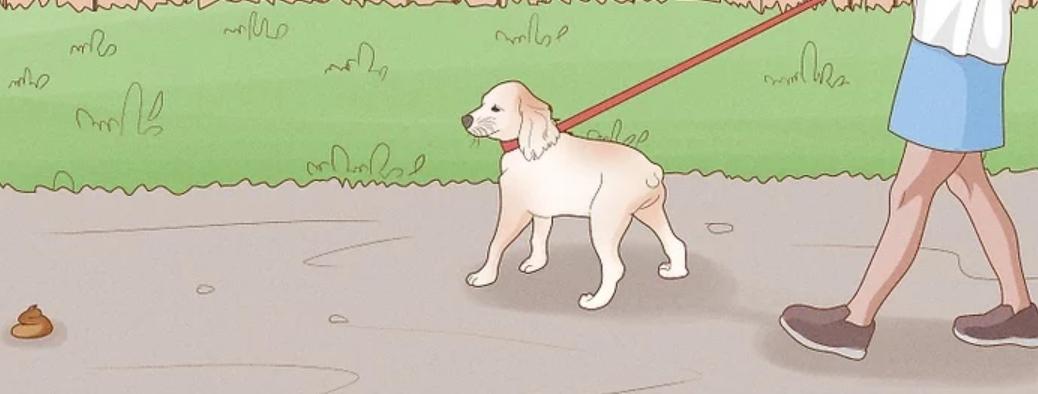Dogs eating poop, known as coprophagia, is a behavior that frustrates many pet owners. It’s not only unappealing but can also lead to health concerns. The reasons behind this behavior can vary, ranging from nutritional deficiencies to simple curiosity. However, by understanding what to put in dog food to stop eating poop, you can take effective steps to curb this issue. Adding specific ingredients and supplements to your dog’s diet can deter them from this habit by making their stool less palatable. This guide will walk you through the most effective tips and ingredients to help you put an end to coprophagia, ensuring your dog remains healthy and your home stays clean.

What Ingredients Can Stop Dogs from Eating Poop?
To effectively address coprophagia, adding specific ingredients to your dog’s food can discourage this behavior. These ingredients work by altering the taste and smell of the dog’s feces, making it less appealing.
Digestive Enzymes
Digestive enzymes are crucial for enhancing your dog’s gut health by breaking down food more efficiently, ensuring they extract maximum nutrients from their meals. When food is fully digested, fewer nutrients remain in the stool, making it less tempting for dogs to eat. Adding a digestive enzyme supplement to your dog’s food is a simple yet effective way to reduce their desire to eat feces. These enzymes also help in preventing malabsorption issues, which can sometimes cause dogs to seek out additional nutrients from feces. Incorporating digestive enzymes into your dog’s diet can improve overall digestion and significantly reduce coprophagia.
Probiotics and Prebiotics
Probiotics and prebiotics play a vital role in maintaining a healthy digestive system by promoting beneficial gut bacteria. A balanced gut microbiome helps reduce digestive issues that might lead your dog to seek out feces for missing nutrients. By incorporating probiotics and prebiotics into your dog’s food, you can enhance their digestive health, making their stool less attractive to eat. This combination not only deters coprophagia but also supports your dog’s overall well-being by improving digestion, boosting immunity, and preventing gastrointestinal issues. Regularly adding these to your dog’s diet can be an effective strategy in stopping them from eating poop.
Fiber-Rich Foods
Fiber plays a critical role in regulating your dog’s digestion, helping to ensure consistent bowel movements and improve stool consistency. Fiber-rich foods, such as pumpkin and sweet potatoes, can be added to your dog’s diet to help reduce the likelihood of coprophagia. The fiber helps to absorb excess water in the intestines, making the stool bulkier and less palatable to your dog. Additionally, fiber aids in satiety, making your dog feel fuller and less likely to seek out feces as an additional food source. Incorporating fiber-rich foods into your dog’s meals can be an effective and natural way to deter them from eating their feces.
Can Adding Supplements to Dog Food Stop Poop Eating?
Adding certain supplements to your dog’s food can help prevent them from eating poop by making the stool taste unpleasant.
Pineapple and Pumpkin
Pineapple contains bromelain, an enzyme that makes the stool taste bitter. When you add pineapple to your dog’s food, the bromelain changes the taste of their feces, making it less appealing. Pumpkin, known for its high fiber content, adds bulk to the stool and helps with digestion, making the stool more difficult for the dog to consume. Both pineapple and pumpkin are safe, natural options that can be easily incorporated into your dog’s diet to help prevent coprophagia. Just a few spoonfuls of these ingredients mixed into their regular food can make a noticeable difference in curbing this unwanted behavior.

Meat Tenderizers
Meat tenderizers, commonly used to soften meat, contain enzymes like papain that can alter the taste of your dog’s stool. Adding a small amount of meat tenderizer to your dog’s food makes their feces taste unappealing, thus reducing their desire to eat it. However, it’s important to use this supplement carefully and consult with your vet to ensure it’s appropriate for your dog’s diet. Some dogs may be sensitive to certain ingredients, so monitoring their response is crucial. This method has been found effective by many dog owners in curbing coprophagia, making it a viable option to consider.
Commercial Coprophagia Deterrents
Several commercial products are available that are specifically designed to deter dogs from eating poop. These deterrents often contain a combination of ingredients like glutamic acid, which makes the stool taste bad to dogs. These products are typically easy to use—simply add the recommended amount to your dog’s food. Over time, your dog learns to associate the unpleasant taste with feces, reducing their likelihood of eating it. It’s important to choose a product that is safe and approved for your dog’s breed and size. Consulting your veterinarian can help you select the most effective deterrent for your dog.
What Natural Remedies Work Best in Dog Food?
Natural remedies offer a gentle yet effective way to stop your dog from eating poop. These remedies are easy to incorporate into your dog’s daily meals and can have a noticeable impact on their behavior.
Fresh Vegetables
Incorporating fresh vegetables like carrots, green beans, and spinach into your dog’s diet can help deter coprophagia. These vegetables are rich in fiber and essential nutrients that improve digestion and reduce the appeal of feces. Additionally, they provide a healthy, low-calorie snack that can replace your dog’s interest in eating poop. The high fiber content in vegetables helps bulk up the stool, making it less likely to be consumed by your dog. Regularly adding these vegetables to your dog’s meals not only promotes better digestion but also contributes to overall health, providing a natural solution to prevent coprophagia.
Herbal Additives
Herbs such as parsley, chamomile, and mint can be added to your dog’s food to improve digestion and reduce their desire to eat poop. Parsley is known for its ability to freshen breath and aid in digestion, while chamomile has soothing properties that can calm an upset stomach. Mint not only freshens breath but also aids digestion and can help deter coprophagia. These herbs not only help in curbing the poop-eating habit but also contribute to your dog’s overall well-being. Adding a small amount of these herbs to your dog’s food can be an effective, natural way to discourage this behavior.
How to Choose the Right Dog Food to Prevent Poop Eating?
Selecting the right dog food plays a significant role in preventing coprophagia. A well-balanced diet can reduce the chances of your dog seeking out feces for missing nutrients.
High-Quality Ingredients
When choosing dog food, prioritize products that list high-quality proteins, such as chicken, beef, or lamb, as the primary ingredient. Foods made with real meat, vegetables, and whole grains provide the necessary nutrients your dog needs, reducing their desire to eat poop. Avoid dog foods that contain fillers, artificial flavors, or by-products, as these can lead to nutrient deficiencies, which may trigger coprophagia. High-quality dog food not only meets your dog’s nutritional needs but also helps maintain their overall health, making it an essential factor in preventing poop-eating behavior.
Balanced Nutrition
Ensuring that your dog’s food offers balanced nutrition is key to preventing coprophagia. A diet that includes the right mix of proteins, fats, carbohydrates, vitamins, and minerals supports overall health and reduces the likelihood of nutrient deficiencies. When your dog receives proper nutrition, they are less likely to seek out feces as a supplement. Consulting with your vet to choose a dog food that meets your pet’s specific nutritional needs is crucial. A well-balanced diet not only supports your dog’s health but also helps in curbing undesirable behaviors like coprophagia, making it a vital aspect of dog care.
Conclusion
Understanding what to put in dog food to stop eating poop is essential for any dog owner dealing with coprophagia. By incorporating the right ingredients, supplements, and natural remedies, you can significantly reduce or even eliminate this behavior. A well-balanced diet tailored to your dog’s needs is the foundation of good health and can prevent the urge to eat feces. Whether you choose to add digestive enzymes, fiber-rich foods, or specific supplements, these strategies will help you keep your dog healthy and happy. Always consult with your veterinarian before making significant changes to your dog’s diet to ensure the best outcomes.
FAQ
What is the most effective ingredient to stop dogs from eating poop?
Digestive enzymes are often the most effective, as they improve digestion and reduce the nutrients left in feces, making it less appealing to dogs.
How long does it take for food additives to stop coprophagia?
It can take a few weeks for the effects of food additives to become noticeable. Consistency is key, and results may vary depending on the dog.
Can changing a dog’s diet entirely stop them from eating poop?
Yes, changing to a high-quality, well-balanced diet can significantly reduce or eliminate coprophagia by addressing nutritional deficiencies that may cause this behavior.
